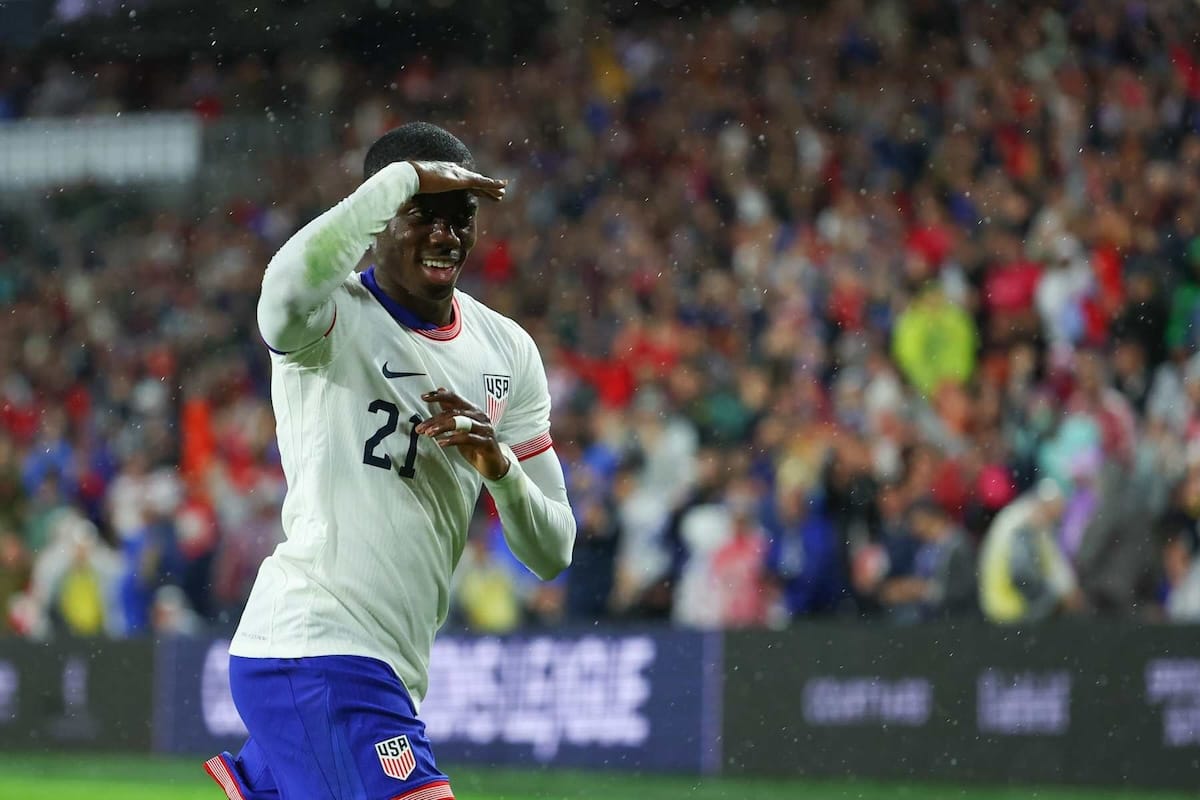When Mauricio Pochettino signed on last fall, only 10 international windows — nine regular FIFA dates, plus the 2025 Gold Cup — separated the USMNT from the 2026 World Cup. After each window, “Ten Windows” digs into key developments and charts the USMNT’s progress towards 2026, even when that progress falls outside one of those ten official dates on the FIFA calendar, as the USMNT’s traditional January friendlies do.
Previously on Ten Windows:

Results this “window”:
USA 3, Venezuela 1 (McGlynn 37, Agyemang 39, Miljevic 64; Yriarte 68); USA 3, Costa Rica 0 (White 21, Clark 77, Agyemang 90)
The story this “window”:
A “different feel” yields different – and more exciting – January results.
Yes, the U.S. men’s national team capped its usual January domestic players-only camp with its usual pair of low-key friendlies, giving USMNT fans anxious for further developments a welcome 180 additional minutes of data on the Mauricio Pochettino era. But the sharpest insight this month into the differences between the team under Pochettino and the USMNT under his predecessor might not have come on the field.
Speaking to Backheeled contributor Sanjay Sujanthakumar on the Scuffed podcast this week, Tim Ream said this regarding the change in approach from Gregg Berhalter to Pochettino when it comes to playing the ball out of the back:
[T]here’s a little bit of a different vibe, a different feel, because it’s not a ‘well, you have to pass here to pass there, to pass there, to pass there,’ it’s ‘well, we can start here but there’s a hundred different variables that can happen, and hundreds of different movements that can happen in a game, and now you have to figure out the pieces of the puzzle.’ And he gives the players … that confidence and that comfort to go out and be able to perform and do those things, right? …
[I]f teams are pressing and it’s crazy, and we’ve given a ball away, no problem. Let’s figure out a different solution. We don’t have to just stick to this short stuff.
And I think that’s where it differs. And it’s been a breath of fresh air, hearing him talk to each of the guys, and talk to the squad and the team, and understand his mindset and his mentality. And knowing that, OK, yes, this is what we want to do, but there’s also other things we can do to win those battles.
Ream’s specifically discussing the ball-playing patterns of the U.S. defense, but no one who’s followed the USMNT through its coaching transition would believe his comments wouldn’t apply just as easily to the U.S. midfield, attack, or overarching management philosophy.
From the beginning of his tenure, Berhalter’s approach was frequently criticized as too regimented, too uncreative. Regardless, when he had the time and opportunity to fully implement that approach – see his multiple Gold Cup triumphs and World Cup success – the laser-focus on executing a “pass here to pass there, to pass there” gameplan could produce excellent results. Without that time and opportunity – see any number of deflating World Cup qualification windows on the USMNT’s way to Qatar – that gameplan did not.
And though the stakes were as low as low gets for the USMNT, the last two January camps under Berhalter were another example. The USMNT netted one goal across three forgettable games, none of them wins.
The USMNT’s victories this week over a Venezuelan B-team and old pal Miguel Herrera’s rebuilding Ticos will inevitably become footnotes in the program’s push towards 2026. But the byproduct of “that kind of confidence and that comfort” brought to this camp by Pochettino is that these were among the most fun footnotes in recent USMNT memory.
Take Jack McGlynn’s belter of an opening goal against Venezuela, for instance:
This ROCKET from Jack McGlynn 🚀🚀🚀
— USMNT NATION (@usmntnation.bsky.social) 2025-01-18T20:52:16.176Z







